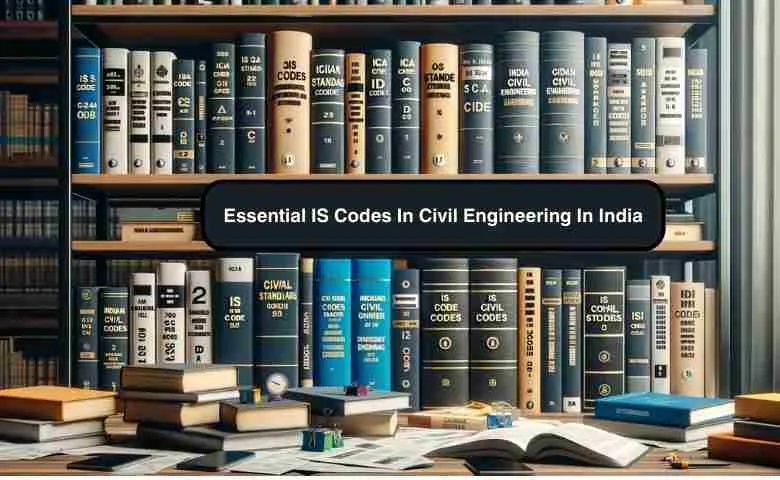Last Updated on June 16, 2024 by Admin
FAQs
Absolutely. IS codes are extensively used for building design in India. These codes provide standardized guidelines and specifications for various aspects of building construction, including material quality, structural design, safety measures, and environmental considerations. They ensure that buildings are designed to meet safety, durability, and functionality standards.
Yes, IS code 456 is specifically for concrete. This code, titled “IS 456: 2000 – Plain and Reinforced Concrete – Code of Practice,” is a comprehensive guideline for the design and construction of concrete structures. It provides detailed specifications on the quality of materials, mix design, construction practices, and safety measures for concrete structures.
In engineering, ‘IS code’ refers to Indian Standard Code. It’s a series of standardized codes formulated by the Bureau of Indian Standards (BIS) to regulate and ensure uniformity in engineering practices and construction activities in India. These codes cover a wide range of engineering disciplines, providing guidelines for quality, safety, and efficiency in engineering projects.
IS codes are crucial in ensuring the safety of construction projects as they provide standardized guidelines on materials, design, and construction practices. Compliance with these codes helps prevent structural failures and ensures the safety and longevity of construction projects.
Yes, IS codes can be updated or revised. The Bureau of Indian Standards periodically reviews and updates these codes to incorporate the latest technological advancements, materials, and safety practices, ensuring that they remain relevant and effective.
While civil engineers don’t need to memorize all IS codes, being well-versed in the relevant codes for their specific area of work is essential. Knowledge of these codes is crucial for designing, planning, and executing construction projects as per national standards.


